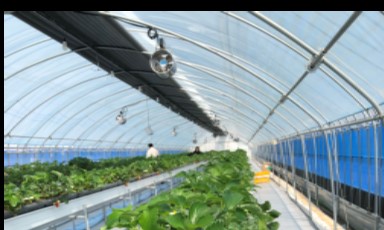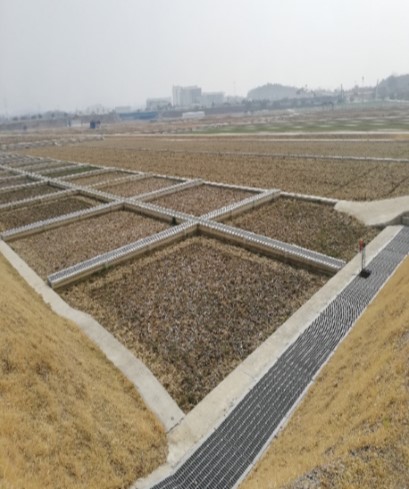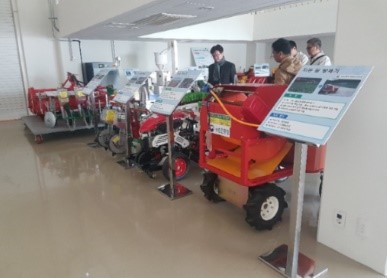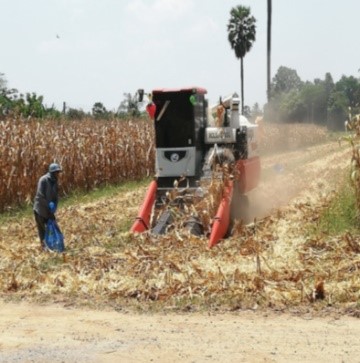Policy Milestones
Policy study on the implementation of contiguous farming in rice and corn areas in the Philippines
(July 5, 2018 to June 5, 2019)

Project Leader: RMC Amongo
Study Leaders: MVL Larona and MKS Onal
Project Consultant: AN Resurreccion
University Research Associates II: MTA Limbo and GNL Lalap
Funding Agency: Department of Agriculture- Philippine Council for Agriculture and Fisheries
The implementation of contiguous farming in the Philippines has been recognized to improve efficiency in performing farm operations, optimize land utilization, and increase crop productivity. Asian countries have implemented land consolidation or land reformation schemes which have similar concepts as contiguous farming including Japan, Korea, Malaysia, Thailand, among others. In the Philippines, Republic Act 10601 otherwise known as the Agricultural and Fisheries Mechanization Law of 2013 stipulated the implementation of contiguous farming as a strategy to harness the full potentials of agricultural mechanization. The AFMech Law of 2013 shall provide the legal basis through which contiguous farming can be applied in major crop producing areas where it is socially, technically, and economically feasible. The general objective of the policy study was to determine the potentials of implementing of contiguous farming in rice and corn areas in the Philippines. Specifically, it aimed to:
- Identify the social, economic, technical, infrastructure, and policy support requirements for the implementation of contiguous farming for rice and corn in the Philippines;
- Update the existing information on large-scale mechanization for selected rice and corn areas in the Philippines;
- Document and analyze the schemes and strategies, best practices and challenges, and policies implemented by two (2) selected Asian countries that contributed to successful implementation of contiguous farming in rice and corn production systems vis-à-vis local experiences;
- Recommend policy directions and strategies, including social, technical, economic and infrastructure requirements, towards achieving a sustainable contiguous farming for rice and corn production areas in the Philippines.
The project presented the enabling environment for the implementation of contiguous farming in the Philippines, in terms of 1. Policy and legislation ; 2. Capacity development; 3. Information dissemination; 4. Financial Support System; 5. Marketing System; 6. Management of the CF and monitoring and evaluation. More importantly, the following policy recommendations were provided:
Policy Recommendation 1: As a matter of policy and as supported by the AFMech Law of 2013 and its implementing rules and regulations, Contiguous Farming shall be implemented in strategic agricultural areas whereby implementation is highly feasible and appropriate subject to social, technical, economic and environmental (including agro-climatic conditions) considerations.
Policy Recommendation 2: The government shall strengthen DA-BAFE, the focal agency for the implementation of contiguous farming projects, in coordination with DAR, DA-RFO, LGUs as provided for by Rule 34.4 of the IRR of AFMech Law of 2013, in coordination with an an inter-agency National Committee for Contiguous Farming (NCCF), with DA-BAFE as Secretariat. The NCCF shall formulate a masterplan for the implementation of contiguous farming. The creation of the NCCF and its proposed operational structure shall require a joint administrative order or an appropriate policy mechanism for the operation and management of the NCCF.
Policy Recommendation 3: The government through DA-BAFE shall establish a model contiguous farm project for rice and corn to demonstrate its social, technical, economic, and environmental viability and benefits.
Policy Recommendation 4: The DA-BAFE, together with DAR, in coordination with the National Committee for Contiguous Farming shall identify and assess areas suitable for contiguous farming in key strategic agricultural areas whereby agro-climatic, and environmental (specifically agro-ecosystems) conditions shall be conducive and shall have competitive advantages, for the production, postproduction and marketing of rice and corns crops.
Policy Recommendation 5: As stipulated in the IRR of the AFMech Law of 2013 under Rule 34.7, the government, through the Department of Agriculture, shall allocate funds in the General Appropriations Act (GAA) for the implementation of Contiguous Farming in the Philippines. The fund for contiguous farming shall cover but not limited to a) land and infrastructure development; b) Provision of agricultural machinery pool for utilization in the contiguous farms, c) Identification and assessment of suitable and potential areas for contiguous farming/land consolidation; d) Establishment of contiguous farming/land consolidation projects; and e) Evaluation and monitoring of the implementation of contiguous farming/land consolidation.
Benchmarking Activity on Land Consolidation/ Contiguous Farming in South Korea



Benchmarking Activity on Land Consolidation/ Contiguous Farming inThailand



